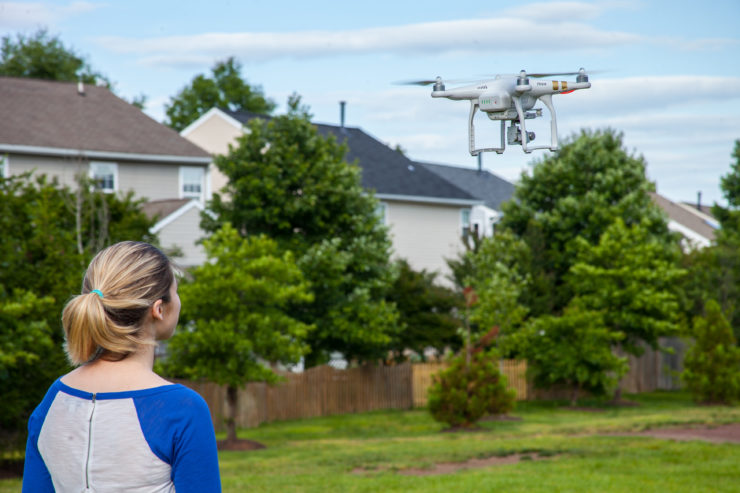The Necessity & Importance of Having Drone Insurance
If you have a smartphone, a drone can be one of the best accessories to pair with it. Surveillance is now effortless, and HD videos are crisp and can be streamed right to your device in real-time. The most exciting part is that you are the operator of that awesome piece of technology. Drones are so popular that even celebrities are using them to capture life moments and even create music videos. Even without the budget of a celebrity, you too can own and operate a drone. However you choose to use your drone, you’ll want to protect your investment so that you are covered in the event of an accident with your drone by having a drone insurance policy.
Handling damage caused by your drone can sometimes be more complicated than handling an insurance claim from damage to your house caused by an errant football thrown through a window. So it is best to be prepared.
Homeowner and Renter Insurance Policies
If you own your drone your homeowner, or renters, insurance policy should provide liability coverage on any damage caused by your drone. However, only a shocking 40 percent of homeowners and renters have insurance coverage.
The disappointing discovery you might make is that your policy will most likely not cover your drone. What you will find, is that drones will fall under personal property coverage under most home insurance or renter’s policies. Often, the cost of the deductible on an insurance claim might cost more than the value of your drone.
The real issue is that coverage through your homeowner’s or renter’s policy is based on who’s property suffered damage caused by your drone, and the circumstances surrounding your drone’s accident. Thankfully, most often property damage through recreational use will often be covered by your liability insurance.
Bodily Harm Caused By Your Drone
In the event your drone causes bodily harm to a non-family member, any insurance claim against you should fall under the liability clause of your renter’s or homeowner’s policy. This will protect you from any lawsuit that is filed against you because of damage caused by your drone.
Important Things to Remember
In order to maintain coverage, you’ll want to make sure you are in compliance with Federal Aviation Administration (FAA) rules and regulations regarding unmanned aircraft operations. You’ll need to register your drone if it weighs over 0.55 lbs. Your use will need to be restricted to recreational purposes for your drone to be covered by homeowner’s or renter’s insurance.
Drone Hobbyist Group Insurance
Due to the emerging technology and evolution of drones, as well as the increase in hobbyist use of drones, a serious drone operator will want to consider a drone-specific policy. Drone hobbyists have come together and created a demand for insurance companies to offer group umbrella coverage to their members.
Insurance firms have begun offering on-demand policies at an hourly rate. To gain access to these policies, a user can geo-locate using an application and the policy will cover the user up to a radius of a quarter mile. The level of liability coverage can be up to $1 million in third party, as well as unintended privacy invasion. You’ll want to make sure to keep your drone clear of known hazards, such as stadiums or crowds of people.

Commercial Drone Insurance Coverage
If you are using your drone for commercial purposes, a drone policy is highly recommended. You, and your company will be liable should damages occur because of your drone. This can be financially devastating if you are sued by a client.
Many clients, especially corporate clients, will refuse to do business with you if you are not adequately covered by liability insurance. Often, they will place insurance requirements into your service contract. These requirements will include a minimum liability amount, as well as line out any additional coverages required by the company.
Drone insurance is not yet a requirement of the FAA in the U.S. Canada and many many European countries, require a minimum level of liability for commercial drone use. Considering the global drone community, it is safe to say that the United States will not be far behind in requiring drones be insured, at least for commercial purposes.
If you already have drone insurance to cover your commercial activities, you are ahead of the curve. You’ll want to keep meticulous records of maintenance, operating manuals, and proof of parts purchased.
Final thoughts
As you navigate the process of insuring your drone, it’s best to remember that you are protecting yourself, the people around you, your property, and your investment.
|